
Alphabetical Menu
Chronological Menu
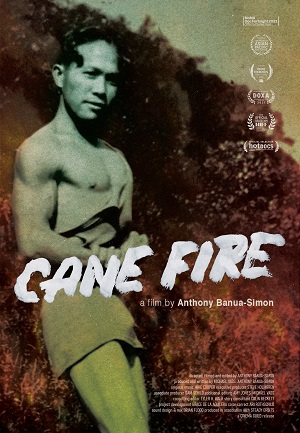
Cane Fire is an eye-opening exposé about how sugar cane companies, real estate companies and Hollywood have exploited the land and native people of Kaua?i, a Hawaiian island, for decades. Through a combination of archival footage and interviews, director Anthony Banua-Simon shows how very little has changed today regarding that exploitation. His great-grandfather emigrated from the Philippines to Kaua?i where he worked at a sugar plantation and was cast as an extra in the 1934 film Cane Fire, a.k.a. White Heat, he has a personal connection to the documentary's subject matter. Anyone with any empathy and compassion, though, will care about how dehumanized native Hawaiians have been as their history gets washed over in Hollywood films which misrepresented them and their customs as well as merely sidelines them by cast as extras. Or about how they're displaced by white people. Or about how the plantation workers were underpaid. Real estate companies try to lure wealthy people outside of Hawaii into buying homes on Kaua'i. Some of those homes are either their second homes which they only live for a few months of the year. There's a lot to be angry about in Cane Fire, but it's a justified anger: indignance. If a documentary only makes your blood boil, that's not enough to make it a great documentary. Fortunately, Cane Fire does much more than that. Director Anthony Banua-Simon interviews real estate agent Chad Deal who's the President of the Board of Realtors who offers his insight and insights, which makes this documentary fair and balanced, a rare feat. Mr. Deal's laugh after Banua-Simon asks him about the plantations on Kaua?i speaks volumes, especially after the film abruptly cuts away from Mr. Deal after he laughs. Is it a nervous laugh or insecure laugh? It's probably both. That choice of editing, though, is great. He also interviews his own family members including his great-uncle Henry Bermoy and his cousins. There are clips from Dragonfly, which cast a native Hawaiian as a native Amazonian, and from Blue Hawaii, among other Hollywood films. At a running time of 1 hour and 30 minutes, Cane Fire is an captivating documentary that finds just the right balance between entertaining the audience and provoking them emotionally as well as intellectually. It opens at BAM Rose Cinemas in Brooklyn via The Cinema Guild. Digger 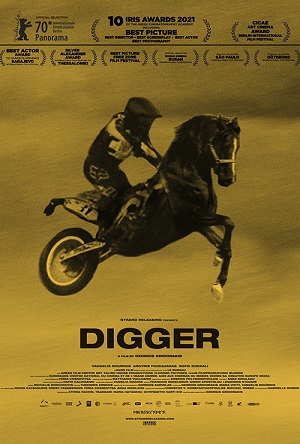 Nikitas (Vangelis Mourikis) lives alone on a small farm in the woods. One day, his estranged son, Johnny (Argyris Pandazaras), arrives out-of-the-blue to inform him that his mother died and that he wants to collect his share of his inheritance. Meanwhile, a mining company wants to buy Nikitas' land, but he refuses to sell it no matter. The screenplay by Georgis Grigorakis, Maria Votti and Vangelis Mourikis combines two plotlines, but the one about relationship between Nikitas and his estranged son works more effectively than the other. There's enough material within their complex relationship to make for a compelling, moving story. You gradually learn more and more about what led to their estrangement as the film progresses, so the screenwriters do a great job when it comes to exposition. They don't rely on flashbacks even though a lot happened in both Nikitas and Johnny's past. Even Johnny's mother, an important character, isn't shown; the film begins after her death. The relationship between the father and son follows an obvious trajectory toward reconciliation, but it's really the journey toward that point that matters. There's a poignant scene when the father and son eat dinner together in the cabin and talk. It's a simple scene that reveals a lot about their relationship. More scenes like that would've been great. Unfortunately, the filmmakers veer toward distracting, unnecessary subplot, i.e. the romance between Johnny and Mary (Sofia Kokkali), who's yet another female character who remains underdeveloped. Then there's the other plotline about Nikitas' battle with the mining company, but Diggers doesn't seem too concerned about going anywhere interesting or provocative with that battle nor does it mine enough tension from it. Too much of Digger feels understated and there's a lot that goes unsaid throughout the film. Understatement worked in the far more profound film Montana Story which charts similar waters, but Diggers is too unfocused and meandering to explore its human relationships profoundly. How is Johnny grieving the death of his mother? Is he grieving at all? It doesn't seem that way. What kind of relationship did that have? Montana Story does a better job of treating its characters as human beings than Digger does. Also, the last scene almost goes into very dark territory which would've been bold and haunting, but instead it chickens out and gives the audience something much lighter while sugar-coating the darker elements. A major strength of Digger is its poetic scenery which makes the most out of the landscape while adding to the somber, melancholic tone. Some of the lyrical imagery, i.e. the trees, do become repetitive, though, and there's a slight issue with over-explaining when Nikitas explains to his son about the significance of those tall trees---one of which is the same age as Nikitas. It's very obvious that the trees are a metaphor, so the filmmakers dumb the film down by explaining the metaphor to the audience, essentially, and spoon-feeding them. Why not trust the audience's intelligence and imagination? Again, Montana Story also uses nature in a poetic way, but without overexplaning or hitting the audience over the head. The performances are pretty good and natural, especially Vangelis Mourikis' performance. These people look like ordinary human beings. It's too bad, then, that the screenplay doesn't humanize them enough. At a running time of 1 hour and 41 minutes, Digger is poetic and occasionally moving, but often meandering, unfocused and repetitive.
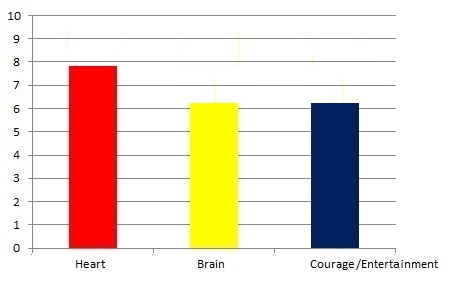 Men 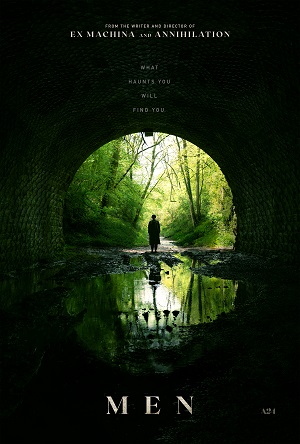 Harper (Jessie Buckley) retreats to an isolated cottage in a remote English village after a traumatic, tragic event occurs with her abusive husband, James (Paapa Essiedu). The cottage's owner, Geoffrey (Rory Kinnear), greets her, but soon she crosses paths with a naked, muddy man (also Rory Kinnear), who stalks her to the cottage. She also meets other people in the village, like the vicar, a policeman and a pub owner, all who physically resemble Geoffrey. One of the many brilliant aspects of Men is that it can be seen as a metaphor for dealing with a toxic lover and how hard it is to escape a toxic relationship. Or it can be seen as a surreal sci-fi horror thriller. Either way, writer/director Alex Garland has woven a fascinating psychological character study of an abused woman. Harper left an abusive relationship with James which she thought was over for sure, but when she moves into the cottage, she soon realizes that the traumatic memories of their relationship still haunts her. Something happened to her husband that she witnessed the last time he saw her. Garland only provides the audiences with snippets from Harper's memory through flashbacks until you learn everything that happened to him and what led to that event. James is a malignant, gaslighting narcissist. When Harper confronts him about how he's scaring her, he reacts with a narcissist tactic called DARVO (Deny, Attack and Reverse the Order of Victim/Offender). He gaslights her into thinking that she's the one scaring him and that he's the victim. Her experiences at the cottage become increasingly bizarre, so don't be surprised if you're confused initially. On an intellectual level, Garland puts you right where Harper is which means that you know as much as she knows about what's going on. Why did the naked man stalk her? Why does almost everyone in the village look like Geoffrey? It's almost as outrageously funny and absurd as that scene in Being John Malkovich when John Malkovich goes into his own portal. If you're patient, you'll find the answers in the third act or, better yet, if you think critically about what the vicar replies to Harper when she opens up to him about how her husband abused her, you might be able to figure out the twist. It doesn't really matter if you can predict the ending or not because what does matter is Harper's emotional journey toward that climax. Without spoiling precisely what happens at the end, it's worth noting that Garland shows that he's unafraid to take risks and to go into dark territory with shades of Cronenberg, Kubrick, Jordan Peele and Charlie Kaufman. A key scene he omits during the last few minutes highlights the fact that he trusts the audience's intelligence and imagination to fill in the gaps on their own by connecting the dots. Jessie Buckley, one of the best actresses of our times, gives yet another radiant, heartfelt performance in a role that's filled with complex emotions. Garland designs the window into Harper's heart, mind and soul through the screenplay while Buckley opens that window and jumps right through it. You're able to send Harper's vulnerability as well as her inner strength that gradually rises to the surface. She's emotionally mature, but that doesn't mean that she's not sensitive or can process her emotions easily. Buckley's moving performance helps the audience to care about Harper's struggle which is concurrently an innate struggle. Rory Kinnear is also super in multiple roles, especially his role of Geoffrey which he plays in a sort of tongue-in-cheek, amusing way, i.e. when he jokes to Harper about how she made a big mistake by eating an apple from a tree in the cottage's front lawn. Gayle Rankin plays Harper's friend who she communicates with via FaceTime, but it's a role that only becomes more important in the third act. On a purely aesthetic level, Men is a triumph as the cinematography, set design, lighting and sound design combine to create a chilling, almost dream-like atmosphere. Many of the shots, like the one in the tunnel with the reflections of the puddle, are breathtaking and creepy at the same time. The tunnel, the apple tree, and what happens to Harper throughout the film can be seen as a metaphor, if you wish to perceive them that way. Garland doesn't over-explain anything or spell everything out clearly regarding what the metaphors even mean, so that's up for you, as an intelligent, sensitive human being, to decide. At a running time of 1 hour and 40 minutes, Men is bold, provocative and engrossing. It's one of the best psychological thrillers since Get Out. 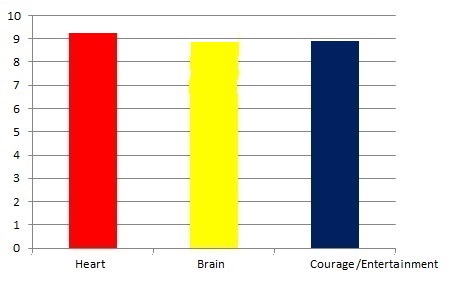 Mondocane 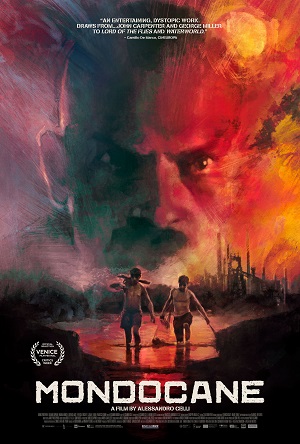
In Taranto, Italy, a futuristic city that has turned into a wasteland run by gangs, Pietro (Dennis Protopapa) have been best friends with Cristian (Giuliano Soprano) for so long they're practically brothers. They're orphans who live together in poverty and work for an elderly fisherman while yearning to escape the city for a better life in New Taranto. When Hothead (Alessandro Borghi), the leader of a notorious gang, The Ants, recruits Pietro, nicknamed Mondocane, to join the gang, he accepts the offer, but not without his best friend, Cristian, nicknamed Pisspants. Pietro and Cristian befriend a girl, Sabrina (Ludovica Nasti), whom they fight over. Meanwhile, a policewoman, Katia (Barbara Ronchi), tries to hunt down the ruthless gang to find and arrest Hothead.
Mondocane is an mostly unconventional gangster crime thriller despite a basic premise that sounds conventional. The screenplay by writer/director Alessandro Celli and co-writer Antonio Leotti first introduces you to the friendship between Pietro and Cristian as they're swimming in the ocean and carrying a big cross that they found. Cristian has a seizure all of a sudden which turns out to be something that he suffers from for some reason. Within the first few minutes, you learn that Pietro has been asked to join The Ants and has been given the task of lighting a pet store on fire. The screenwriters omit the scene showing them committing the act of arson. Instead, they flash forward to the aftermath of the burnt store and the police arriving to investigate, so they trust the audience's imagination. Pietro and Cristian's life in Taranto clearly sucks and they don't have any good role models either. Even the fisherman whom they've lived with for a while had sexually abused them in the past, an important bit of information that gets mentioned very briefly. They get deeper and deeper into trouble the more they spend time with The Ants, but that's not surprising. The addition of Sabrina, who's also a poorly-developed character, to the relationship between the two boys makes the film slightly more compelling and complex, but not very complicated. There's very little levity, and very little exposition when it comes to how Taranto ended up looking like a post-apocalyptic world. Some suspense could've come from the police's investigation, but you already know more than the police do because you're a few steps ahead of them, so there's no mystery. Hothead, the "villain" is not a very well-written character, though, because he's rather one-note without enough of a backstory. How did he end up a criminal? It's not very clear. There are also bizarre things that the characters do like licking frogs. The modicum of suspense comes from wondering whether or not the two kids will make it out alive at the end which won't be spoiled here. Dennis Protopapa and Giuliano Soprano both give solid performances and have great chemistry together as Pietro and Cristian. You can feel the bond of friendship between them thanks to their rapport together. They almost seem like brothers. With less talented actors, it would be hard to care about such unlikable characters, but they make it easier because they bring them to life. On an aesthetic level, Mondocane is a triumph of stylish cinematography, set design and lighting which combine in a way that invigorates the film. Its style sometimes becomes not only part of its atmosphere, but also part of its substance, much like in Mad Max: Fury Road. At a running time of 1 hour and 41 minutes, it isn't as powerful and gripping as Gomorrah or City of God, but it's nonetheless an exhilarating, stylish and gritty crime thriller.
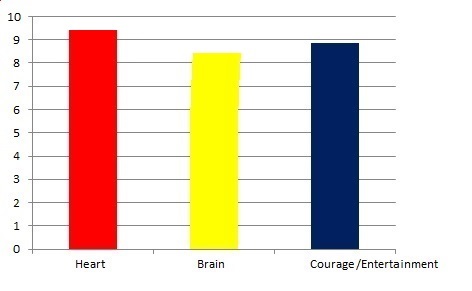 A New Old Play 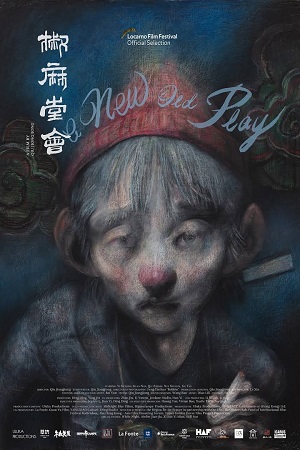 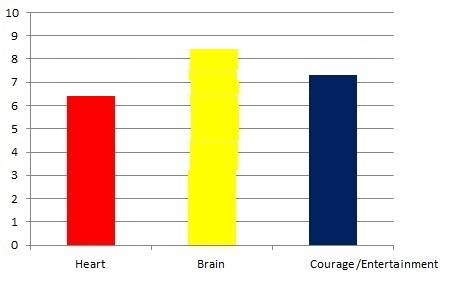 |